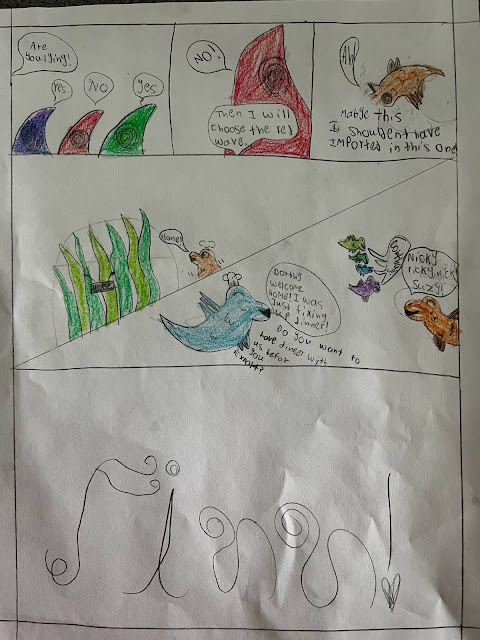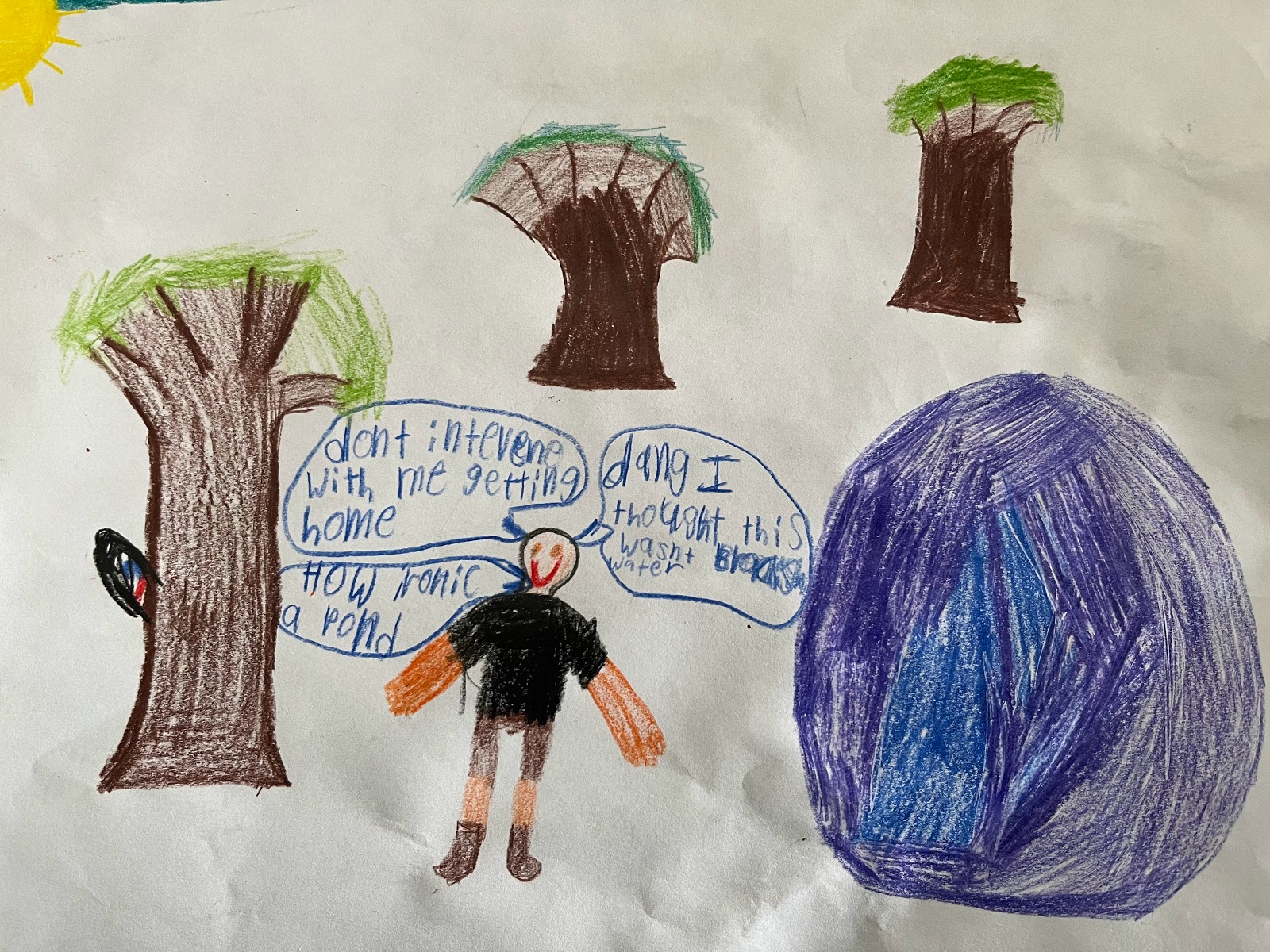The Story of Epenow & Our Unit on East Coast Native American Tribes
It is a misunderstanding to think that the Pilgrims were the first English people in Massachusetts. The English were jealous of the Spanish's discovery of gold and wanted a piece of the New World resources; there were English merchant vessels in the New England area prior to the pilgrims arriving.
In 1611, a ship under the control of Captain Edward Harlow ventured into the waters of Noepe. Disappointed by the lack of “big ticket” items (gold), Harlow realized that he could make the most money in the slave market by kidnapping Indigenous people and selling them back in England to the Spanish. The English Merchants invaded Noepe and captured Epenow.
Epenow was, understandably, unhappy about being kidnapped from his homeland. The other Noepe Americans who were captured with him died on the journey back to England. But he made the best of the situation and learned English.
The British Merchants were unhappy with their “investment” as well. The Spanish were disinterested with Indigenous American slaves, as they had a tendency of dying from European diseases they were underexposed to. They couldn’t get a good price on Epenow on the slave market, so they had to make money off of him someway else …
According to historical records, Epenow was abnormally tall and had a strong, athletic physique. Because buyers weren’t interested in him as a slave he was rented out to venues as a “Wonder of the New World.” Epenow had a brief career as a stage actor and was shown at festivals, coffee shops and street corners. His act: His mastery of the English language. English commoners would gasp looking at him in the street, their eyes would light up when he would say to them “Welcome, welcome.”
One reason we know about this phenomenon is because William Shakespeare makes mention of Indigenous men in his plays “The Tempest” and Henry VIII”. The latter was first performed not long after Epenow arrived on the Thames. Perhaps it was Epenow which inspired Shakespeare’s pen?
Epenow was probably not happy about being exploited like this. While his gig wasn’t as horrific as slavery, it was probably humiliating to be put on display for people to gawk at. Epenow wanted to go back home. He met up with another captured American, Sassacomoit who was Abenaki and they concocted a plot to get back to the Americas. This is an impressive feet as Sassacomoit spoke a different, but related, Algonquian language, kind of like if Epenow spoke English and Sassacomoit spoke a Creole.
Epenow proposed that he could “conduct the adventurers to a gold mine” on his home island. The prospect was too irresistible for the adventurers to pass up and they began outfitting a ship with the idea that Epenow would guide them to the gold.
Keep in mind that, Epenow was a native to what is now Martha’s Vineyard and had probably NEVER seen gold in his life. He probably didn’t even know what it was until the English told him about it.
In 1614, the English vessel carrying Epenow and a few other Native Americans arrived off the American coast. Epenow guided them back to Noepe, his homeland. When they arrived, Epenow’s tribe, including even his brothers met the ship with great celebration. The English crew “kindly entertained” the captive and his kinsmen while they “communed” in their mother tongue.
The locals of Noepe promised to return the next day and show the English Merchants where the “Gold mine” was. Little did the English know, Epenow had told his tribesmen he was being held captured against his will and to come back tomorrow with weapons to jailbreak him from these English kidnappers.
The next day, a fleet of 20 canoes closed in rapidly on the anchored ship. The Noepe people caught the British off guard. Epenow jumped overboard and escaped the ship with the protection of arrows being fired by his friends.
The English, caught off guard, retaliated, but there was nothing they could do as they watched Epenow and their dreams of gold disappear across the water. They had been played. All they could do was sail back home empty handed.
Five years later, in 1619, the explorer Thomas Dermer visited Noepe and “met with Epenow (...) who lived in England, and speaks indifferent good English. With him I had much conference,” Dermer recalled, as the former captive “laughed at his own escape, and reported the story of it with obvious satisfaction.”
Our students had the theme of "Journey" for this unit's comic books. We hope you enjoy!




























































Comments
Post a Comment